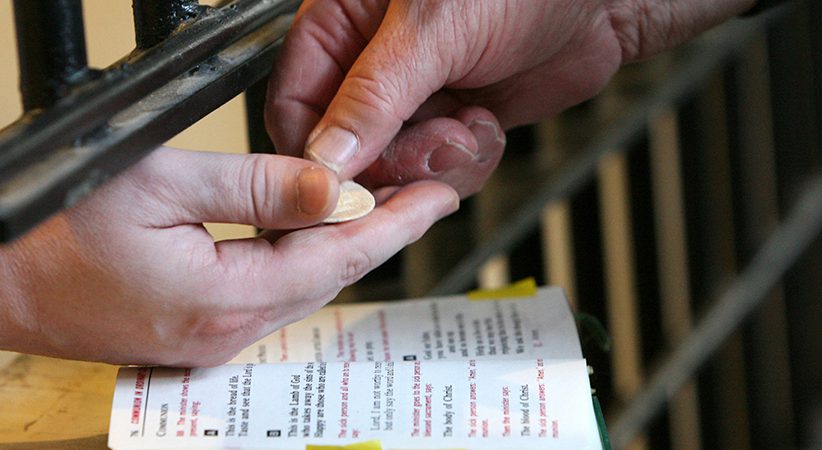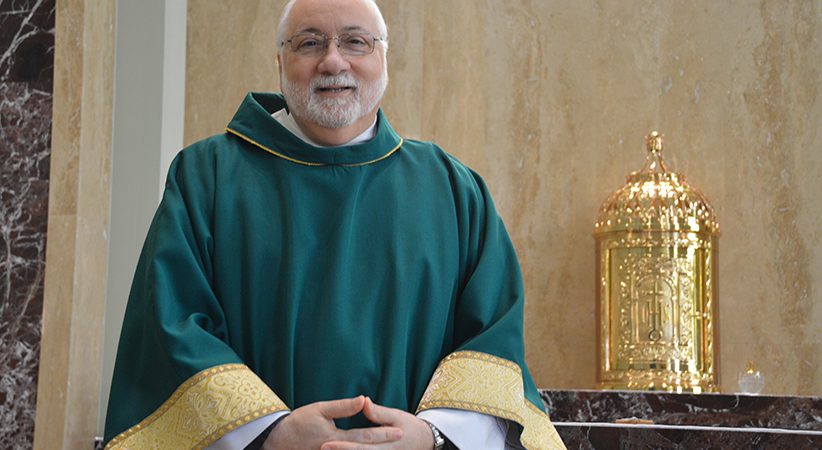Fighting complacency in our diaconal ministry
With grace we “begin” and “begin again”
Deacon James Keating Comments Off on Fighting complacency in our diaconal ministry
It can be a challenge to remain dedicated to holiness if one has been exercising faith and ministry for many decades. In the Western culture, there are daily assaults upon the imagination that tempt it to become anchored in distraction rather than in the stability of Christ’s own self-offering through liturgy and charity. For a deacon to lose his way, to lose his interest in things spiritual, is understandable. But to accept such drifting as “inevitable” is wrong. It is to mistake sloth for a virtue. As we journey through time into eternal life, even things ecclesial and spiritual can become routinized. After all, such is the curse of original sin and our human weakness. Only those who endure to the end (see Mt 24:13) will see that the possibilities of the Resurrection begin here in time and are not wholly situated in the afterlife. Indeed, if one waits to taste heaven after death, one will miss heaven. We are meant to gain a taste for heaven during our earthly life so that we will want God; and our wanting is met by his desire for us — thus filling us with heaven.
What makes sustained interest in the holy throughout many decades of service even possible is our own response to grace as it prods us to “begin again” and “stand again,” even after we have sinned. Aids to spiritual living are deeply embedded in the ordinariness of our days. Such especially is true in the cultural West, where the sacraments are still accessible with some ease. A deacon needs to participate in the ordinary sacramental life of the Church in order to have the extraordinary grace of communion with the Trinity within him.
However, in the life of some middle-class deacons, the “noon day devil” — or sloth — is a constant temptation. This temptation takes on the form of a question: “I wonder if my ministry is worthwhile, if my prayers mean or accomplish anything?” Underneath such temptation is a deeper pain born of a regular struggle with masculine narcissism: “I could just drift away from the diaconate and who would know?” Since the diaconate is a humble station without much fanfare, the siren call of sloth can be a temptation: “Hey, look over here. There is something much better than what you are doing now.”
|
Like what you’re reading? Subscribe now.
|
There is a temptation to go broad when the divine calls us to go and stay deep. By deep, I mean allowing the stream of grace we tap into by participating in the Eucharistic liturgy and by doing acts of service to influence our character. To keep “looking over the fence” at a priest’s ministry or the secular nature of the layman’s life truly is to miss the gift of the diaconate. The diaconate is given to a man because, like all of humankind, he is weak and needs a structured spiritual life; it was not given to him simply because he possessed natural gifts of leadership or useful ecclesial skills. In order to draw strength, he should stay dependent upon the mysteries of the Faith and upon living a moral life. This is his secure path to holiness. Such a path is simple, but it can lead to disdain and the temptation to sloth: “I should be doing more. I should do something different.” Sloth leads us to neglect or abandon the spiritual life, tempting us to “give up” and to dream of other vocations.
In marriage, a man can go astray from his wife when he fantasizes that there is a perfect woman for him “out there.” This attitude of looking “beyond” instead of “within” is the very trap Satan sets for those who give up on deepening their prayer lives or, when it comes to marriage, deepening their appreciation of their wives.
To go deep is a suffering; to go broad in fantasy is a pleasure. Attraction to such pleasure is a reason why a deacon can grow weary of the spiritual and ministerial life. However, in Christ, one’s going deep can become a pleasure, but it is a pleasure that is more peace than ecstasy. Can we adjust to such a strange fruit born of intimacy with the divine — peace rather than excitement, and consolation rather than the anxious and perennial American drug of “what’s next?”
Deacon James Keating, Ph.D., is the director of theological formation at the Institute for Priestly Formation.



